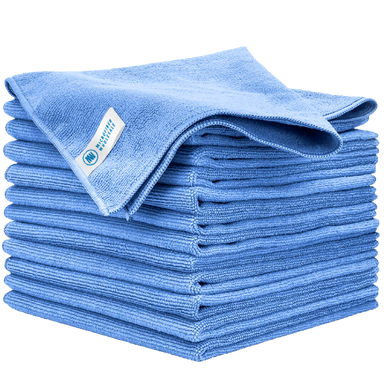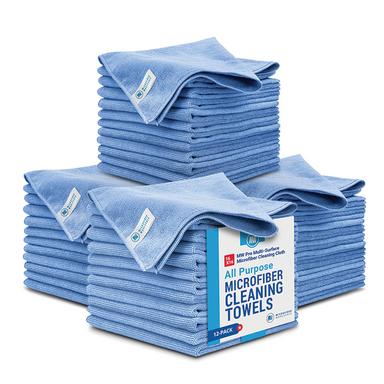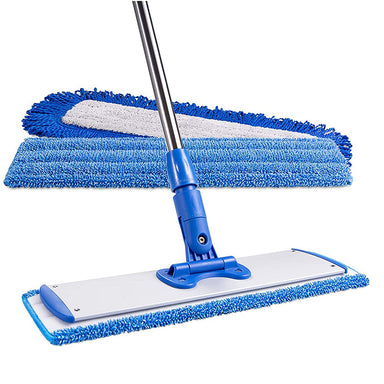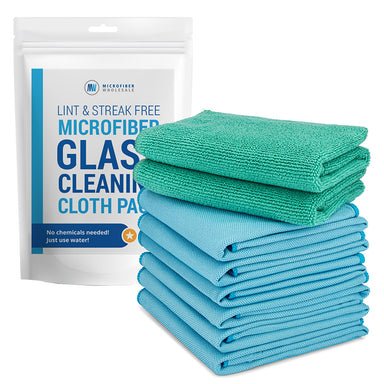Transform Your Tile: Give Your Floor a Glow up
Restoring neglected tile floors and bringing back the original brightness of stained grout might seem like a Herculean task. But with the right tools and techniques, you can renew their look without spending endless hours on your knees scrubbing.
Let's dive into some efficient methods to rejuvenate your tile flooring and grout.
Chemical Aid with Acid Brighteners
If you're dealing with acid-resistant flooring, such as porcelain or ceramic and wish to minimize manual labor, acid brighteners are your go-to. Products such as Zep Grout Cleaner & Brightener have garnered industry recognition for their potent stain-removing properties.
But with great power comes great responsibility.
These commercial-grade products can pose hazards, including chemical burns or damage to acid-sensitive surfaces such as marble. Therefore, if you decide to use them, ensure you're equipped with protective goggles and gloves and you thoroughly peruse the instructions.
A word of caution: avoid combining acid treatments with electric spin tools, as inadvertent splattering could have hazardous outcomes.
If you are working with an acid-sensitive floor, such as marble or granite, acid brighteners are out of the question.
In this case, you need specialty cleaners such as Black Diamond Intensive Stone & Tile Cleaner designed with strong detergents to replicate the acid-brightening results without damage.
They are a little slower to work than their acidic counterparts, but still very effective and far safer, so they can honestly be a great solution for any floor if you're nervous about working with acids.
Control Odor with Urine Remover
Let’s say the quiet part out loud: bad aim is one of the toughest challenges when it comes to keeping bathroom floors looking and smelling beautiful. And little kids aren’t the only ones to blame.
As this is a skill that can clearly take decades or even lifetimes to master, savvy cleaners need a systemic solution.
Professional Urine Removers truly get to the root of the problem, dissolving the urine crystals that cause persistent discoloration and killing the germs causing the odor with hydrogen peroxide and enzymes.
Electric Scrubbing Hand Tools
An electric scrubbing hand tool, like the Drill Brush, can make a huge difference.
Attach this tool to your existing electric drill and let it work its magic, especially on bathroom showers and small floors.
When paired with an effective bathroom or floor cleaner, you can witness dirt and grime being effortlessly whisked away. It's a lightweight, cost-effective option suitable for smaller areas.
Mechanical Assistance with Orbital Scrub Brushes
For those with large bathrooms or tiles that cannot be exposed to acid treatments, consider using an orbital scrub brush.
These devices operate at high speeds (around 175 rpm) and do most of the hard work for you. Weighing under 25 lbs, they are easy to handle and maneuver.
If purchasing seems a tad overboard, many local hardware outlets offer them on rent. Alternatively, consider renting heftier floor scrubbers; however, these can weigh upwards of 90 lbs and might pose challenges in transportation.
Whichever you opt for, use a neutral pH deep cleaner like Black Diamond Stonework & Tile Intensive cleaner for optimal results.
The Power of Steam
For those seeking an environmentally friendly approach without compromising effectiveness, steam cleaners are an ideal option.
Especially beneficial when looking to restore vast stretches of grout, these machines eliminate the need for harsh chemicals.
Although effective, they require caution in their operation. It's worth noting that while they can be rented affordably from big hardware stores, mishandling can lead to burns.
However, when used correctly, they can rapidly remove dirt from grout and are generally lighter than their mechanical counterparts – a significant advantage if portability is a concern.

















